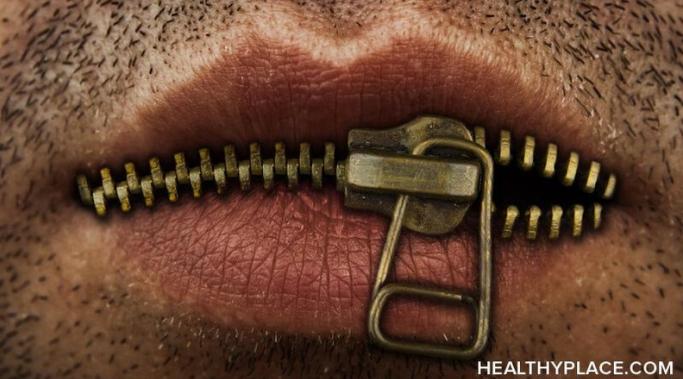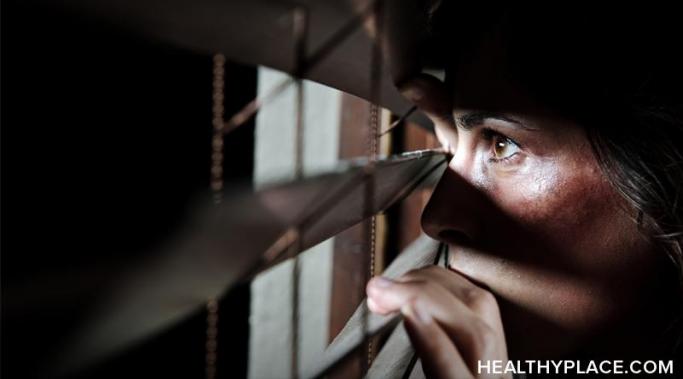There is a growing awareness around coercive control, as well as umbrella terms like verbal and emotional abuse. This is partly thanks to the UK law that was passed in 2015 (carrying a prison sentence of up to five years for perpetrators), and also due to celebrities speaking out as part of the #metoo and #timesup movements. Although no such progress has been made in the US in terms of legislation, this is still a step in the right direction; it's the start of our cultures taking lesser-known forms of domestic violence more seriously and recognizing the devastating effects of verbal abuse (as well as other types of abuse). So what exactly is coercive control, and how does it differ from other forms of abuse in a relationship?
Stop Abuse
Many of us think we know what gaslighting means, but even so, gaslighting is hard to call out in a relationship because it happens so gradually you might not even notice. Don't be fooled by the displays of gaslighting we see in movies and on TV -- a gaslighter won't necessarily leave the oven on to make you think you're crazy. He or she won't always resort to blatant emotional manipulation tactics or call you a liar. Gaslighting can be a lot more pervasive, subtle and destructive than our basic understanding gives it credit for -- and it could be happening to you. Here's an illustration of what gaslighting means, why gaslighting is so hard to call out in a relationship, as well as the gaslighter types and traits to watch out for.
Have you noticed signs you are verbally abusive? Verbal abuse articles often focus on victims of verbal abuse because they are typically the ones reaching out for help. Not as often do we explore the other side of the coin, the abusive readers, or the readers considering they may be abusive. If you have ever considered that maybe your behavior isn’t normal or have noticed you react in volatile ways when you are agitated or lose your temper, continue reading to find out about seven signs you may be verbally abusive.
Verbal abuse cuts deeply, especially if you don't know how to respond to verbal abuse in an effective way. Arguments can be volatile with name-calling and blaming or more subtle like with passive-aggressive remarks or the silent treatment. One thing victims of verbal abuse come to discover is abusers are often irrational and unreasonable. The hostile language does not serve the purpose of getting a message across, it actually has nothing to do with what’s being said, it’s about the abuser's need to gain power and control over the victim. Understanding the argument itself carries no real significance as the abuser makes it apparent that trying to reason or explain is useless. Learning how to respond to verbal abuse can alter the course of the attacks and help a verbal abuse victim regain his power.
Have you been verbally abused when you were sick? It's horrible. We have enough to deal with when we're sick without being verbally abused when we're at our most vulnerable. Feeling unwell and physically weak makes us sitting targets for gaslighting, emotional abuse and manipulation because we're less likely to put up a fight. But is this part of the attraction to perpetrators or are we just more susceptible to abuse when our defenses are down? Let's examine what we know about verbally abusive personality types and why they target us when we're sick.
Christmas is celebrated as a time of peace and joy, but for anyone coping with verbal abuse, the holiday season can be quite the opposite. Perhaps you're forced to spend time with a manipulative or criticizing family member you wouldn't normally see, or maybe the emotional vampire lives under your roof. Either way, verbal and psychological attacks can become more frequent and intense over the holidays, causing anyone in the firing line to become drained and withdrawn. Here's why abusers act worse at the holidays, and how to cope with verbal abuse when it begins.
Think you've spotted the early warning signs of verbal abuse in your relationship? If so, you're not alone. I was in a volatile, abusive partnership for two years before I identified the signs, and by then the damage was already done. Like me, you probably know that any form of emotional abuse is insidious and highly destructive. You understand that this kind of psychological trauma can lead to depression, self-harm and even physical violence in a relationship. Unlike me, however, perhaps you can spot the warning signs of verbal abuse early on and put an end to the vicious cycle.
Withholding contact is something your partner could do that could make you feel worse than hearing his verbal abuse. Picture yourself in a relationship in which there are no violent outbursts, no explosive fits of rage, no words thrown at you like hand grenades, in which your only punishments are silence and deprivation. It may sound like a favorable option to anyone on the frontline of a verbally abusive relationship, but so-called "withholding" is a particularly insidious method of abuse that deprives us of our basic comforts and makes us feel less than human. Here's why verbal abusers withhold verbal and physical contact, and how to respond.
So, you've spotted the signs of verbal abuse in your relationship and you want to end the verbal abuse. You know that blaming, shaming, threatening and name-calling does not equate to a happy or healthy partnership. You realize that maybe -- just maybe -- you deserve better. So how do you make it stop? Is ending verbal abuse possible?
So what do we say to a victim of domestic violence? More specifically, what should we say to a friend who is abused if they come to us for help? The confusion over what to say is warranted. Even my mother didn't know what to say to me when I cried to her about the abuse, and my mother is brilliant. However, since I've been an abuser's target, I have a good idea of what to say to a victim of domestic violence, and I'll tell you all about it.









